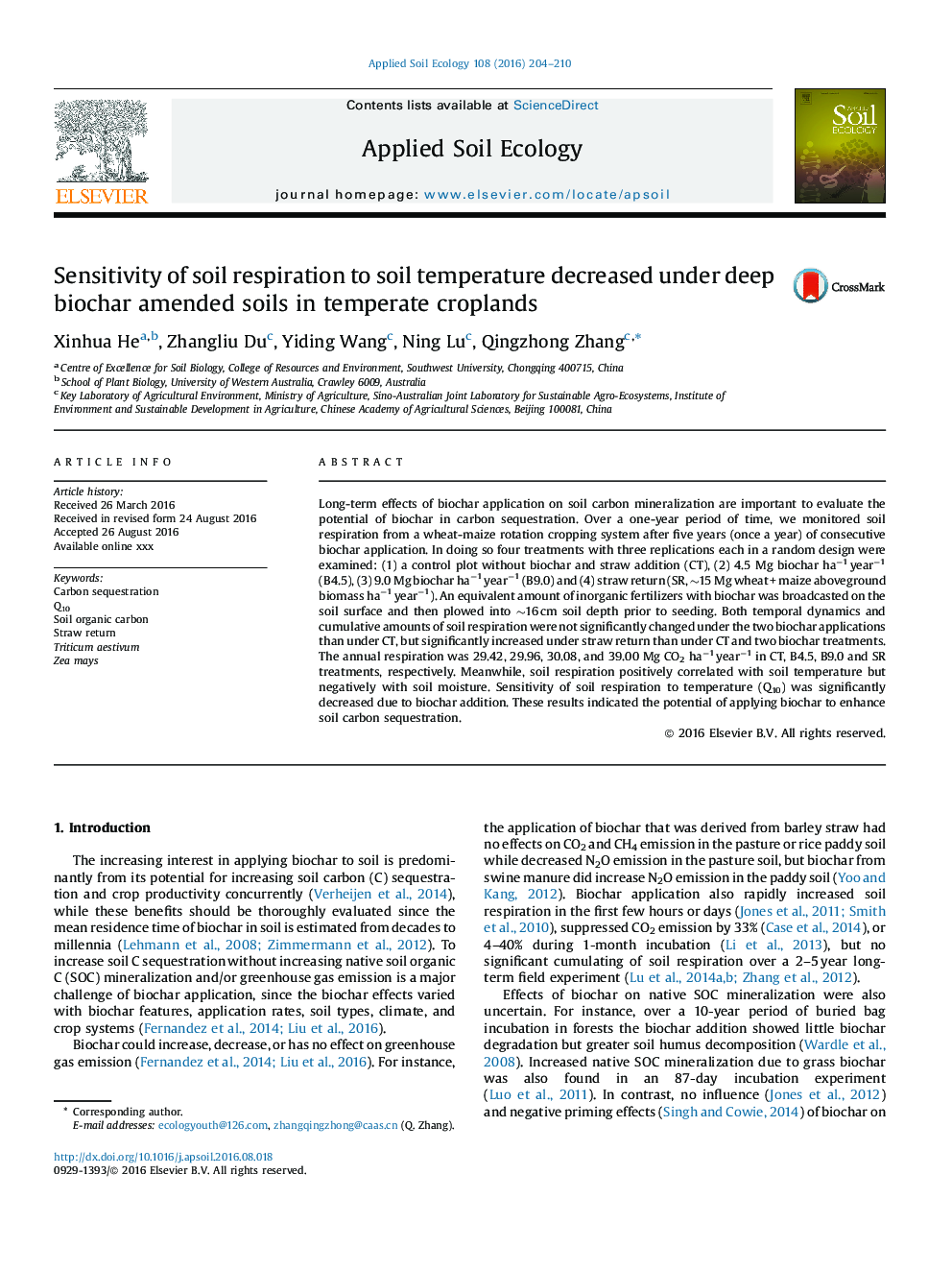| Article ID | Journal | Published Year | Pages | File Type |
|---|---|---|---|---|
| 6297469 | Applied Soil Ecology | 2016 | 7 Pages |
Abstract
Long-term effects of biochar application on soil carbon mineralization are important to evaluate the potential of biochar in carbon sequestration. Over a one-year period of time, we monitored soil respiration from a wheat-maize rotation cropping system after five years (once a year) of consecutive biochar application. In doing so four treatments with three replications each in a random design were examined: (1) a control plot without biochar and straw addition (CT), (2) 4.5 Mg biochar haâ1 yearâ1 (B4.5), (3) 9.0 Mg biochar haâ1 yearâ1 (B9.0) and (4) straw return (SR, â¼15 Mg wheat + maize aboveground biomass haâ1 yearâ1). An equivalent amount of inorganic fertilizers with biochar was broadcasted on the soil surface and then plowed into â¼16 cm soil depth prior to seeding. Both temporal dynamics and cumulative amounts of soil respiration were not significantly changed under the two biochar applications than under CT, but significantly increased under straw return than under CT and two biochar treatments. The annual respiration was 29.42, 29.96, 30.08, and 39.00 Mg CO2 haâ1 yearâ1 in CT, B4.5, B9.0 and SR treatments, respectively. Meanwhile, soil respiration positively correlated with soil temperature but negatively with soil moisture. Sensitivity of soil respiration to temperature (Q10) was significantly decreased due to biochar addition. These results indicated the potential of applying biochar to enhance soil carbon sequestration.
Related Topics
Life Sciences
Agricultural and Biological Sciences
Ecology, Evolution, Behavior and Systematics
Authors
Xinhua He, Zhangliu Du, Yiding Wang, Ning Lu, Qingzhong Zhang,
